December 2020 to April 2021 – Upscaling RHCC by Developing a Protocol for Low-Budget Reproductive Health Kit
In humanitarian crises, maternal deaths are a real concern as they are almost double the global average. 99% of the world’s maternal deaths occur in developing countries so the United Nations’ Sendai Framework for Disaster Risk Reduction urged national and international organisations to promote effective disaster risk management through improved ‘resilience in the health systems’ by 2030 (UN, 2015). Within Bangladesh, the Inter Agency Reproductive Health (RH) Kit 8, which enables miscarriage management and post-abortion care during disasters and crises (UNFPA, 2014), are not available due to its high cost and lengthy procurement process. This Kit is vital in reducing maternal mortalities and morbidities in disaster contexts, as such it directly contributes to the UN’s Sustainable Development Goals, especially Goal 3 (Good Health and Wellbeing).
In light of the above, funded by IPPF’s Designated Regional Funds, this project aims to develop a low-budget reproductive health kit for disasters and humanitarian crises and identify the pathways to integrate this kit in the Government of Bangladesh’s reproductive health system, and in other low-and middle-income countries. To make the RH Kit available in disaster-prone primary health care facilities in Bangladesh, this Kit must be made available in the first place, and at a reasonable cost. To do so, this project will address the following questions:
- What is the process involved in developing a low-budget RH Kit for disasters and humanitarian crises in Bangladesh?
- Who are the stakeholders that can support and validate the protocol for uptake?
- What should the Kit constitute to make it cost-effective and to align with the drug policy and guideline of the Government of Bangladesh?
- How can the Kit be integrated in the Government of Bangladesh’s health system?
This project is a follow-on from the previous research project titled: Exploring the Challenges and Opportunities Around Reproductive Health in Disasters in Belkuchi, Bangladesh, which was funded by IPPF’s ‘Innovation Programme Fund’ and IPPF’s South Asia Region Office ‘SPRINT Initiative’.
This new project is led by Dr Nibedita Ray-Bennett (University of Leicester) in collaboration with the research partners: Dr Fariha Hassen, (BSMMU), Mr Maqbul Bhuiyan (DMA), Mrs Nimisha Goswami (IPPF-SAR) and Dr Murali Mohan Reddy Gopireddy (IPPF-SAR). The Research Assistants are: Dr Sumaiya Tasneem Khan (BSMMU) and Mrs Denise Corsel (University of Leicester).
Updates:
30 June 2021 – Introducing Reproductive Health Kits for Disasters and Crises
We are pleased to announce that the latest policy brief ‘Introducing Reproductive Health Kits’, and the leaflet on ‘Frequently Asked Questions on Emergency and Reproductive Health Kits’ produced by the research team has been published by IPPF. The policy brief and the leaflet can be accessed through this web link: https://www.ippfsar.org/resource/introducing-reproductive-health-kits-facility-crisis-set-bangladesh
15 April 2021 – The project was concluded.
8 April 2021 – A consultation with RHSTEP took place virtually via Zoom to discuss the estimated unit cost analysis of the Facility RH Kit and the Crisis RH Kit.
19 March 2021 – A consultation with DGHS took place virtually via Zoom to discuss the estimated unit cost analysis of the contents of Facility RH Kit and the Crisis RH Kit.
16 March 2021 – 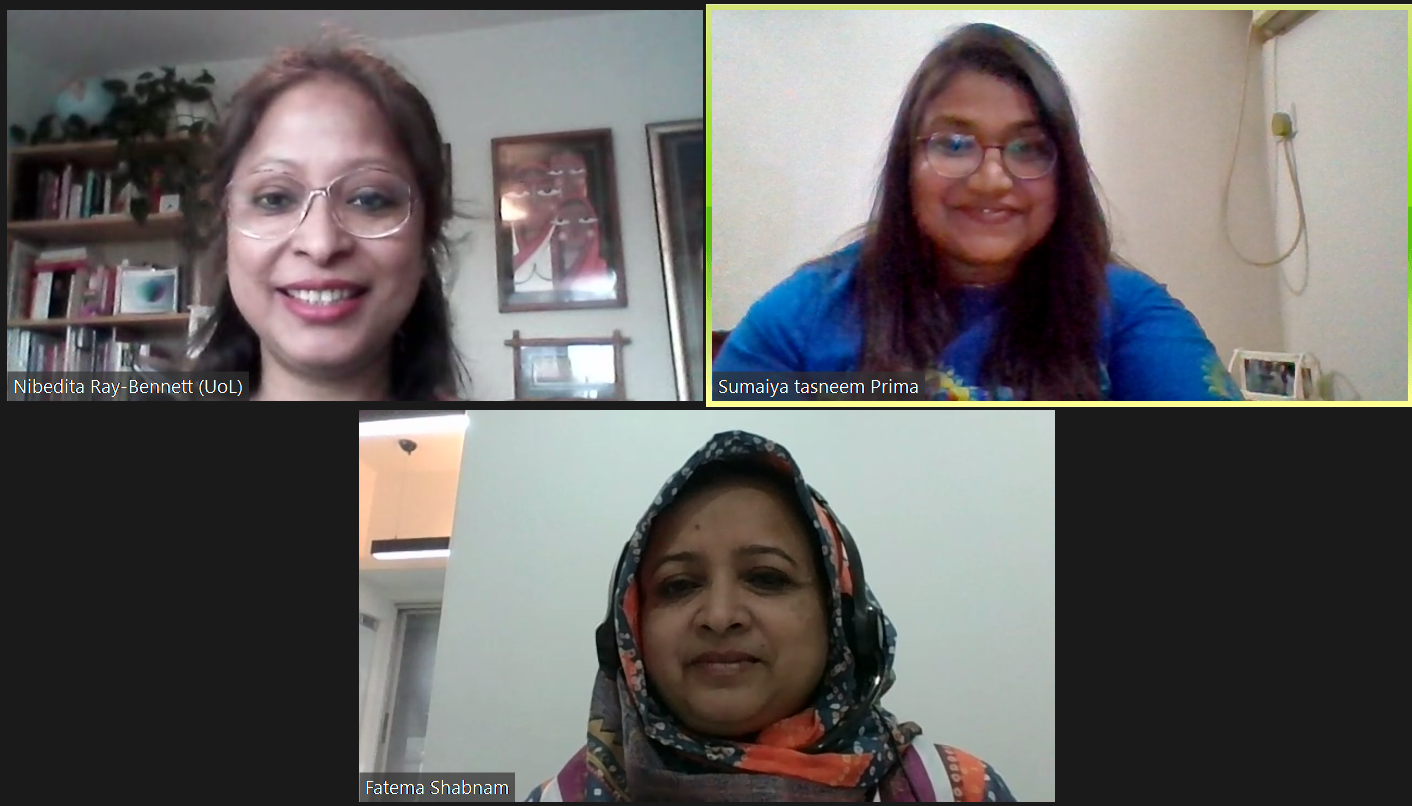 A consultation with a representative from Pathfinder International in Bangladesh took place to assess the strengths, weakness, opportunities and threats of the Facility RH Kit and the Crisis RH Kit.
A consultation with a representative from Pathfinder International in Bangladesh took place to assess the strengths, weakness, opportunities and threats of the Facility RH Kit and the Crisis RH Kit.
14 March 2021 – A consultation with DGHS took place virtually via Zoom.
8 March 2021 – 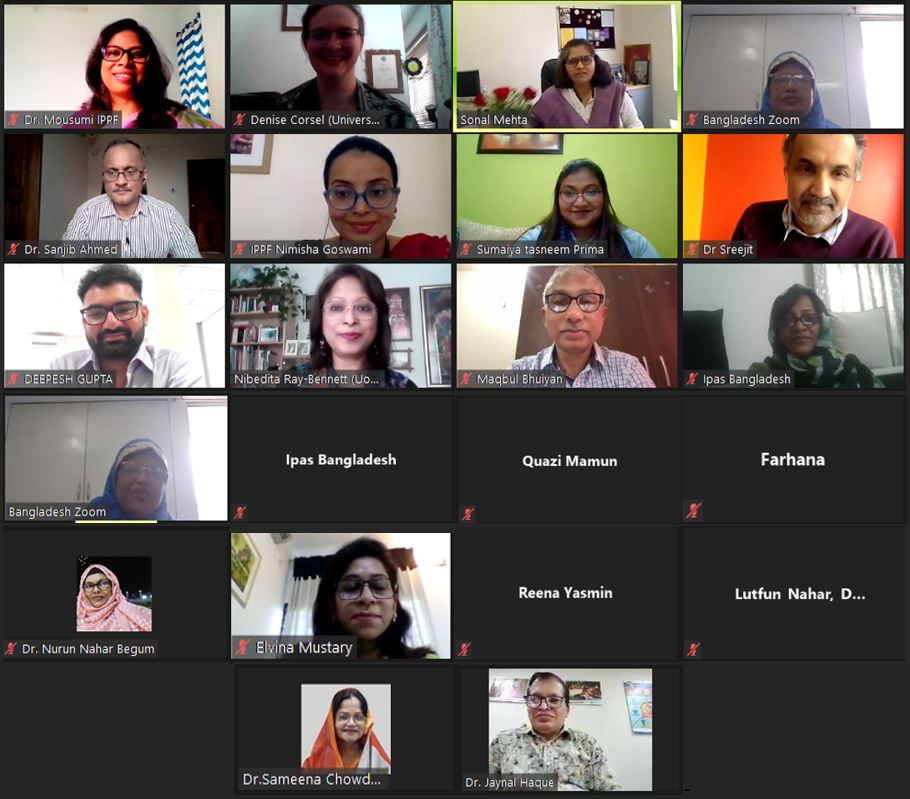 The virtual stakeholders’ workshop took place from 15:00 to 17:30 (Bangladesh time). It was attended by 10 key stakeholders from DGFP, DGDM, OGSB, RHSTEP, UNFPA, Ipas, Marie Stopes, Jhpiego, and FPAB.
The virtual stakeholders’ workshop took place from 15:00 to 17:30 (Bangladesh time). It was attended by 10 key stakeholders from DGFP, DGDM, OGSB, RHSTEP, UNFPA, Ipas, Marie Stopes, Jhpiego, and FPAB.
5 March – The first milestone of the project was achieved. After months of systematic literature review of 47 sexual and reproductive health kits, 4 national guidelines and 10 one-to-one consultations with seven Technical Experts (UNFPA, Ipas, RHSTEP, FP2020, Bangladesh’s Ministry of Health and Family Welfare’s Directorate General of Family Planning (DGFP) and Obstetrical and Gynaecological Society of Bangladesh (OGSB)), we have developed two low-budget reproductive health (RH) kits: ‘RH Kit Type A – Facility Set-up’ and ‘RH Kit Type B – Emergency Set-up’. To read more about this milestone, please click here.
1 March 2021 – 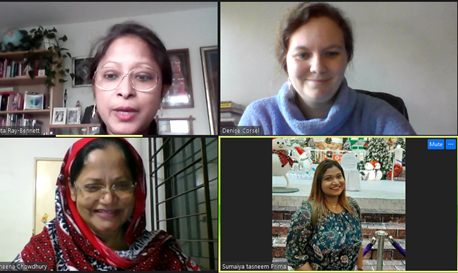 A consultation with OGSB took place virtually in order to validate the contents list.
A consultation with OGSB took place virtually in order to validate the contents list.
27 February 2021 – A consultation with DGFP took place virtually via Zoom to finalise the contents of the kit and to discuss the upcoming workshop.
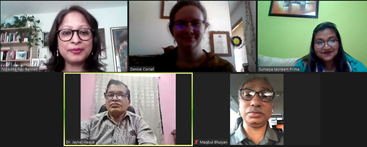
25 February 2021 – 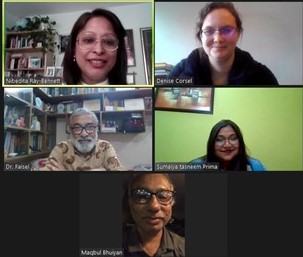 The consultation with BAPSA took place virtually via Zoom.
The consultation with BAPSA took place virtually via Zoom.
Additionally, another consultation with FP2020 took place to receive technical advice.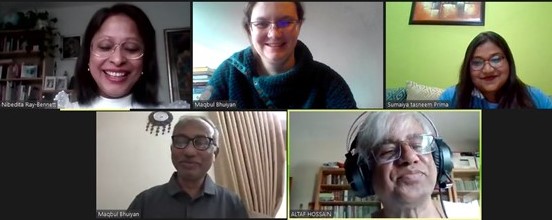
23 February 2021 – 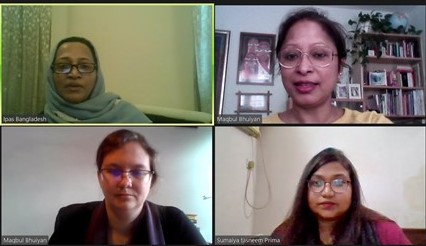 The consultation with Ipas took place virtually via Zoom.
The consultation with Ipas took place virtually via Zoom.
22 February 2021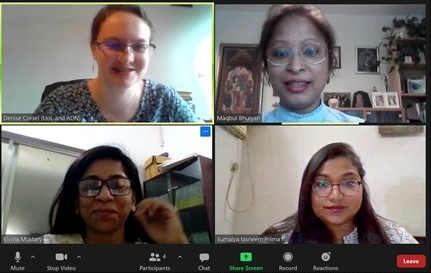 – The consultation with RHSTEP took place virtually via Zoom.
– The consultation with RHSTEP took place virtually via Zoom.
17 February 2021 – 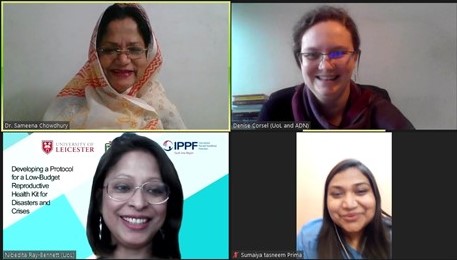 The consultation with the Obstetrical and Gynaecological Society of Bangladesh (OGSB) took place virtually via Zoom.
The consultation with the Obstetrical and Gynaecological Society of Bangladesh (OGSB) took place virtually via Zoom.
17 February 2021 – 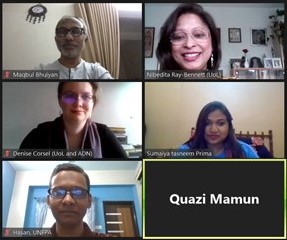 The consultation with UNFPA in Bangladesh took place virtually via Zoom.
The consultation with UNFPA in Bangladesh took place virtually via Zoom.
12 February –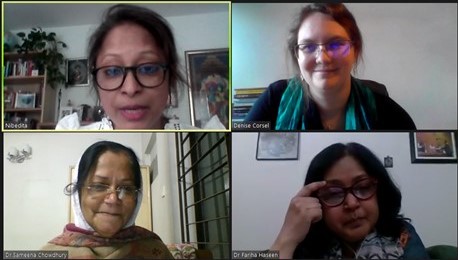 A meeting with the Obstetrical and Gynaecological Society of Bangladesh (OGSB) was held in order to receive technical advice on the contents of the low-budget RH kit.
A meeting with the Obstetrical and Gynaecological Society of Bangladesh (OGSB) was held in order to receive technical advice on the contents of the low-budget RH kit.
11 February – Meetings with the Directorate General of Family Planning (DGFP) and the Directorate General of Health Services (DGHS) took place to discuss this project and the Research Brief.
11 February 2021 – The Core Team had a meeting to discuss the finalised Research Brief, as well as the points of actions for the one-to-one consultations and the two workshops.
3 February 2021 – The Core Team had a meeting to discuss the details of the planned one-to-one consultations.
27 January 2021 – The project agreement between the University of Leicester and BSMMU have been finalised.
21 January 2021 – The first meeting of the year took place with he University of Leicester, DMA, BSMMU and IPPF-SAR. The literature review is almost complete. A total of 47 existing RH Kits have been identified and reviewed.
22 December 2020 – The last meeting of the year took place to discuss the progress of the project. So far, 37 SRH-related organisations have been identified and 37 different existing RH Kits.
16 December 2020 – The project agreement between the University of Leicester and DMA have been finalised.
9 December 2020 – The Core Team had a meeting with IPPF. The literature review process of a i) inductive-deductive; and ii) deductive-inductive (iterative) was decided to be best for this project.
7 December 2020 – The first Core Team meeting was held with the University of Leicester, BSMMU and DMA in attendance. It was agreed that consultations with key stakeholders would be held, instead of interviews.
3 December 2020 – The project commenced. Currently, the project agreements between the research partners are being finalised and the literature review for this study is being undertaken.

